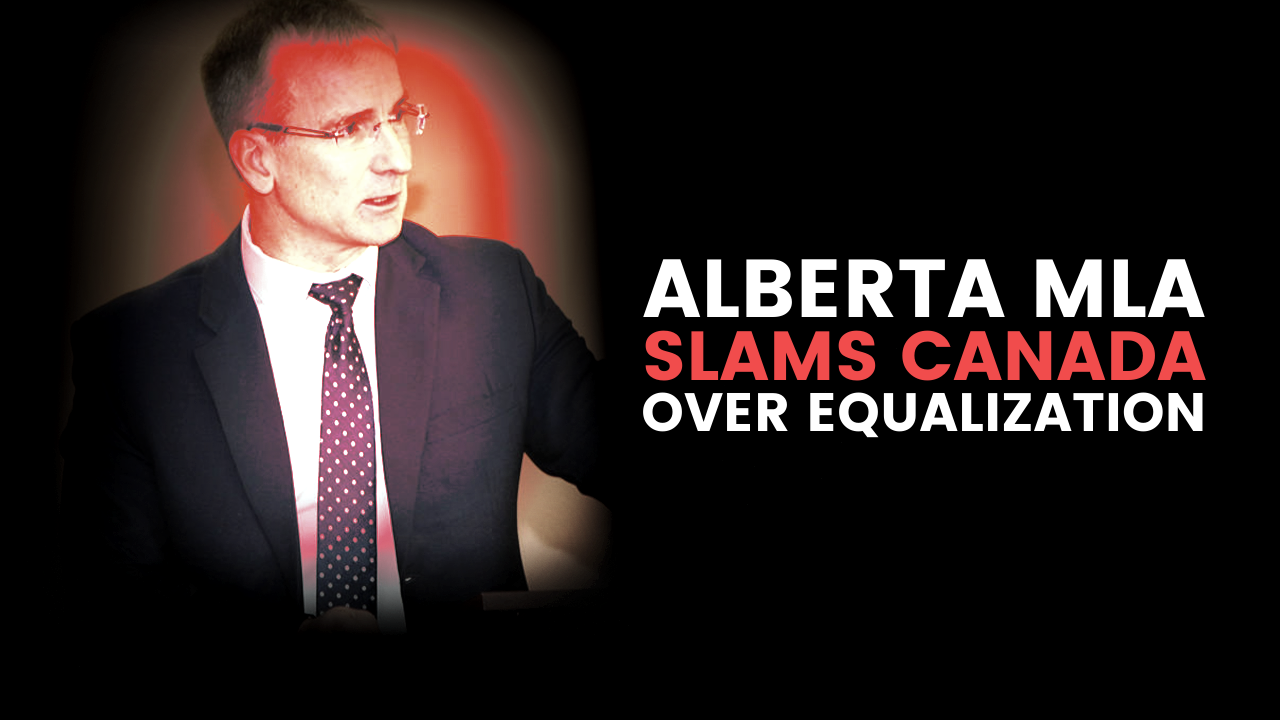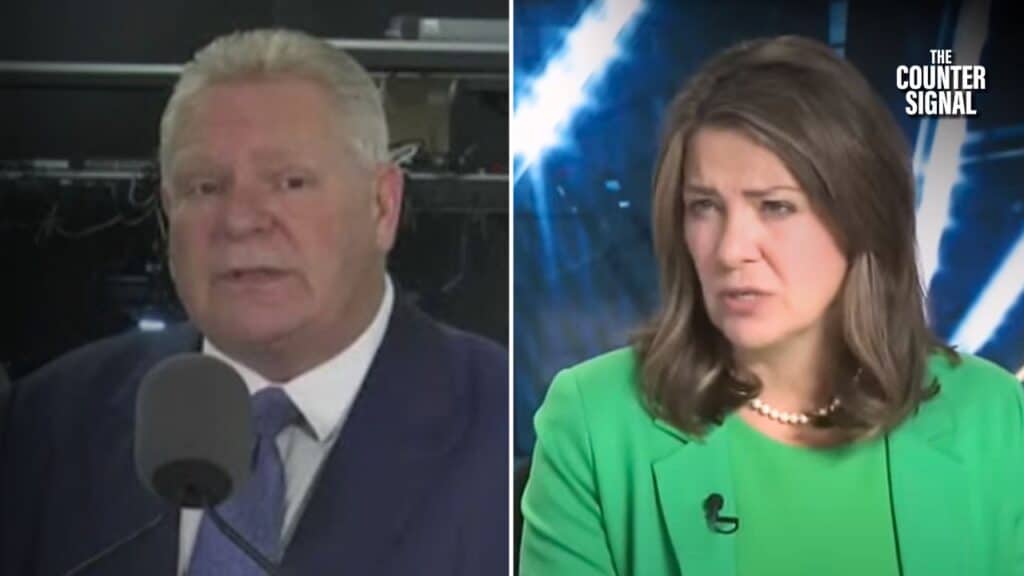
Alberta MLA Jason Stephan echoed the sentiments of many Albertans indifferent with the province’s position in confederation, citing the unfairness of the equalization program as one of many instances of vast disparity.
The equalization program, created in 1957, allows the federal government to transfer funds unconditionally to provinces with below-average revenue per capita to ensure all provinces provide comparable services and taxation levels.
The Government of Canada uses equalization to address fiscal disparities among provinces — financed entirely from the federal government’s general revenues — where recipient provinces spend it as they deem fit.
At the Alberta Legislature, he spoke to the budding western alienation felt by his constituents and by residents across the prairie plains of Alberta.
“I rise not in anger but to raise a voice of warning,” begins Stephan. “Media describes Justin Trudeau as Canada’s first NDP Prime Minister, but he is also Canada’s first separatist Prime Minister.”
“He demonstrated that he will not hesitate to attack the livelihoods of Alberta individuals and families to further his political ambitions for power. Canada is spending itself into oblivion, threatening to take Alberta down with it, adopting policies of economic self-destruction.”
Stephan added: “Great self-reliance is the right way to free Alberta from hostile interference and insulate our children from a looming fiscal train wreck. We can trust in the truth—the peace of acting for ourselves, seeking to provide for our families and others.
He contends that what Canada was is less important than what Canada is and what it is becoming, posing that socialism is “an enemy of self-reliance.”
Stephan said that Quebec is the principal beneficiary of equalization on a per capita basis at the expense of Alberta businesses and families, the principal per-capita payers.
He notes that Quebec, the principle taker of equalization, refused to sign Section 36(2) of the Constitution Act containing equalization. “If Quebec refused to sign the Constitution, why are they getting the vast majority of equalization payments under it?” he posed rhetorically to the Alberta Legislature.
Between 1961 and 2019, Alberta’s “net contribution” to Canada is $622 billion — roughly five percent of the province’s economic activity over the period and equivalent to $3,344 annually per person in 2021 dollars. Of that total, Quebec received $476 billion.
“When legal plunder displaces work as a ruling principle, a sustainable society is lost. Unprincipled, hostile partners have no moral authority to claim unconditional loyalty,” said Stephan. “In the real world, loyalty is not conferred. It is earned.”
“I have served in partnerships where principles govern should not need to litigate good-faith relations. When there is a lack of good faith, partners leave [those] dysfunctional relationships.
“If Quebec were Alberta, they would have left this partnership long ago.”
“The Premier of Quebec says that one of his favourite things about Canada is receiving equalization. “I love you because of what I take from you” is never a functional relationship.”
Stephan contends that on this premise, Quebec would be kicked out of the Canada partnership.
“Over the last three years, Quebec has received $13 billion in equalization each year,” he said. “Alberta receives nothing.”
In Budget 2018, then federal Finance Minister Bill Morneau proposed a five-year renewal of the previous equalization regime beginning April 1, 2019, until 2024. Under the Budget Implementation Act, which received Royal Assent, the federal government will gradually increase equalization payments to the provinces from $17.9 billion in 2017-2018 to $22.1 billion by 2022-2023.
On state-controlled Quebec Hydro, which provides the lowest residential power rates in North America at below-market prices, the province sells its power at deep discounts. The result lowered Quebec’s fiscal capacity by billions and increased its equalization share from Alberta families and businesses.
Fiscal capacity refers to a province’s ability to raise own-source revenues at tax rates set to the national average, plus any additional revenues from natural resource royalties.
In 2007/08, using 2020 dollars, the fiscal capacity gap between Alberta and PEI was $10,999. By 2018/19, that number fell to $6,138. With the 2020 COVID shock and sudden fall in natural resource prices, the Fraser Institute estimates BC will overtake Alberta with the highest fiscal capacity.
“Under equalization, [we] indirectly pay for and subsidize Quebec Hydro providing [low] residential power rates to Quebeckers,” said Stephan.
“But looking at our power bills, this is occurring at a time when some are suffering under unprecedented increases in our power costs, including due to escalating carbon taxes imposed by Ottawa, which by design disproportionately harm Alberta businesses and families,” he added.
“Informed Albertans see equalization for what it truly is, and they overwhelmingly reject it.
“The [Constitution] Act does not specify how the principle of equalization is to be applied,” continues Stephan. “Those details are calculated under a formula manipulated by politicians.”
“Merely amending the formula does not protect Alberta from future unprincipled politicians of tomorrow.”
He transitioned his remarks on Alberta’s deteriorating relationship with its fellow partners in the federation. “How well will Ottawa and Quebec respond when confronted with principle requests for fairness? Will they be principled and act in good faith, or will they respond with indifference or hostility?”
Quebec, Ontario and BC have veto power to lay out the requirements for regional and provincial buy-in on constitutional amendments. Under that same provision, two or more Prairie provinces representing at least 50 percent of the region’s population would also have to agree, as would two Maritime provinces representing the same.
Stephan asked: “Forced to confront reality, will they seek to deflect, defer, or distort the truth?
He reassured the Official Opposition and his government colleagues that Albertans would be watching as their response to this referendum reveals the intent and nature of fellow provinces.
Acknowledging that Albertans cannot unilaterally change the constitution to end equalization, Stephan emphasized speaking against unfair treatment.
“The Prime Minister is hostile to Alberta and wants to plunder and pillage Alberta, its businesses, and individuals.
“Justin Trudeau … tried to make the referendum about the Premier. This referendum has nothing to do with the Premier. This is about Albertans.”
Stephan emphasized that the province’s fight for fairness is not founded on anger but principle.
“How is leverage increased when appealing for fairness from unprincipled partners?
“Here is a true principle: the less Alberta needs Ottawa, the more leverage Alberta has.










